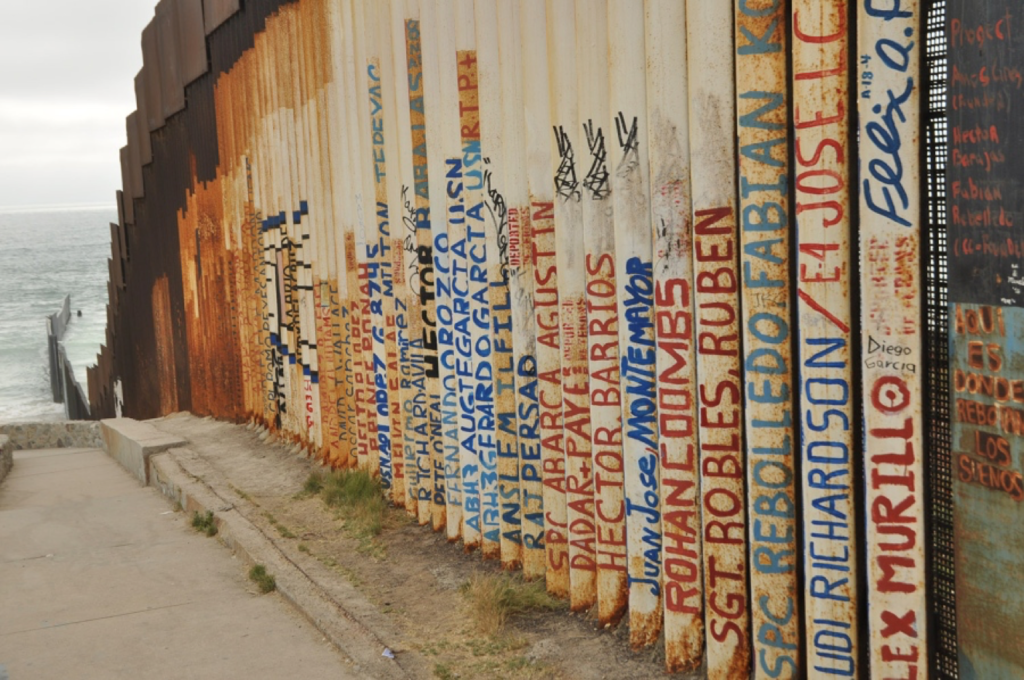Univision’s Urgent Sense of Purpose
The Spanish-language network is a striking example of a news organization that is meeting the needs of
a frightened and information-famished audience.
Earlier this year, a rumor rippled through the large Hispanic community in northeast Miami, delivered through the WhatsApp text-messaging service: Immigration and Customs Enforcement agents were hauling undocumented immigrants off to detention centers in buses. The “deportation force” President Trump promised during the campaign had finally arrived, it seemed.
Panicked callers turned to the source of information they rely upon above all others: Univision, the Spanish-language television network, which is aggressively tracking whether Mr. Trump makes good on his campaign vow to conduct the largest mass expulsion of modern times.
Journalists at Univision’s headquarters here started hitting the streets, calling contacts and analyzing a photograph of a supposed ICE bus in action.
No sweep was underway, they learned; the photo was from 2014.
Univision pumped out Facebook and Twitter posts debunking the rumor, posted a more detailed article on its website and produced a television package for its stations across the country. It repeated the exercise all over again when the same rumor emerged a few days later in Los Angeles.
“WE THOUGHT THEY WERE GOING TO KILL US IN THE FIRST HOUR.”
José Zamora, senior vice president of strategic communications.
Grew up under constant threat as his father’s newspapers exposed corruption in the Guatemalan government, leading to one particularly harrowing episode when security forces held the family hostage for several hours. Credit Greg Miller for The New York Times
Just another day covering President Trump’s America at Univision News.
By now you’ve probably heard that this is a golden age for journalism — how The New York Times and The Washington Post are warring for scoops in ways reminiscent of the Watergate era; how an information-hungry public is sending subscriptions and television news ratings soaring, reinvigorating journalists and reaffirming their mission (“Democracy Dies in Darkness” and all that).
But the story isn’t complete if it doesn’t include Univision News, one of the most striking examples I’ve seen all year of a news organization that is meeting the moment.
It is the leading news source for Hispanics in the United States, citizen and noncitizen alike — a core audience that has an almost existential stake in the Trump administration’s policies. These include moves to starve “sanctuary cities” of federal funds and to end the Obama-era attempt to protect from deportation the undocumented parents of citizen children — which, Univision was first to report, the administration did on Thursday.
Univision News has its own history with the president. Its anchor Jorge Ramos was the first journalist to be kicked out of a Trump event, after he tangled with Mr. Trump at a 2015 news briefing. Its corporate parent had already broken with Mr. Trump by then, over his campaign-opening proclamation that Mexico was exporting rapists, crime and drugs to the United States. (In response, Univision pulled out of showing Trump-owned beauty pageants; Mr. Trump retaliated with a lawsuit and a letter informing Univision that its personnel were no longer welcome at the Trump golf course here.)
YOU COULD FEEL VIOLENCE EVERYPLACE — WAITING FOR A GREEN LIGHT, IN A RESTAURANT.”
Patricia Clarembaux, digital journalist at Univision.
Fled Venezuela because of the dangerous environment for journalists. She was once attacked with a bottle at a restaurant and had her equipment stolen as the authorities looked on. Credit Greg Miller for The New York Times
Election night raised the stakes.
“On the one hand, we knew that it would have a terrible impact on the Hispanic community in the United States,” Univision’s president of news, Daniel Coronell, told me as we sat in his office overlooking the buzzing central newsroom.
But that was quickly followed by the realization that, as of that night, Univision’s news would be “about the survival of, the permanency of, the members of the community,” he said.
Univision was ready for that challenge in a way it probably would not have been a few years ago.
Mr. Coronell was an early recruit of Isaac Lee, whom Univision — under the relatively new ownership of a group led by the media investor (and Democratic donor) Haim Saban — hired in late 2010 as the news chief with a basic mandate: Build a bigger and better newsroom.
At the time, the news division was largely built around its newscasts, like “Noticiero Univision” with Mr. Ramos and his co-anchor, María Elena Salinas. Otherwise, “there was no reporting,” Mr. Lee told me. “They took cables and images, and they assembled the newscasts.”
“IMMIGRATION IS OUR BIGGEST TOPIC. YOU CAN BE SURE IT’S GOING TO BE A LOT OF CLICKS.”
David Maris, the photo editor at Univision.
Fled Venezuela with his wife, Tamoa Calzadilla, after receiving death threats and having his photo equipment seized by the authorities.
Mr. Lee started by creating investigative and documentary units. As a onetime journalist in Colombia — where his work linked onetime drug lords to political leaders — Mr. Lee knew something his competitors did not: Some of the best and bravest journalists in the world were on the sidelines, chased out of their newsrooms or home countries by murderous regimes their work had exposed.
Mr. Coronell, for example, fled his country after receiving unnervingly detailed death threats against his 6-year-old daughter.
Univision News’s top communications executive, José Zamora, grew up in Guatemala under constant threat because of his father’s work as a leading journalist exposing government corruption. Mr. Zamora followed his father into the business, but became convinced a few years ago that the United States would be a better place to raise his son, considering that an armed SWAT team had once stormed his home and held him, his parents and his brothers hostage for several hours. (“We thought they were going to kill us in the first hour,” he told me.)
The latest influx of talent has come from Venezuela, where crackdowns on journalists under the government of Nicolás Maduro, and a hostile takeover of major media companies by government allies, have put reporters in danger while stifling their work.
“WE ARE THE VOICE OF THE VOICELESS PEOPLE … PROBABLY THE MOST WEAK MEMBERS OF THIS IMPORTANT COUNTRY.”
Daniel Coronell, president of news.
Fled Colombia with his family after exposing links between the government and drug gangs, resulting in serious threats to his family. Credit Greg Miller for The New York Times
That contingent includes Tamoa Calzadilla, who lost her job after reporting on the deaths of two protesters at the hands of government forces, and Nathalie Alvaray, who left the same news organization in frustration as she tried to champion such work (and was later held hostage in her home).
Their hiring has coincided with the latest expansion effort at Univision, led by the former deputy managing editor of the Spanish newspaper El País, Borja Echevarría, to move more aggressively into digital journalism.
With a team that includes 75 new hires in the last two years, Mr. Echevarría has started new units for special investigative projects, podcasts, and data journalism, mobile video and informational graphics.
Every newsroom making the digital transition is building similar teams, aimed at producing new forms of journalism for mobile phones and modern attention spans. But at Univision, the effort is infused with a direct sense of urgency.
“WE SEE A LOT OF SIMILARITIES BETWEEN TRUMP AND CHÁVEZ.”
Nathalie Alvaray, manager of local digital news.
Was held hostage with her family in their home in Venezuela after tangling with new government-friendly owners of the newspaper chain where she worked. She likened President Trump’s surprise victory to that of the former president Hugo Chávez in Venezuela. Credit Greg Miller for The New York Times
One of its most shared digital features this year has been an explainer on the papers that documented and undocumented immigrants should always have on them, in case of immigration raids or stops.
At a cluster of desks at one edge of the cavernous newsroom during my visit, Almudena Toral, the director of digital video, was tweaking a segment — animated by a newly arrived Venezuelan designer — that she explained as follows: “What should I do if ICE comes for me in my house?”
Nearby, the data journalism team was putting the finishing touches on a statistical analysis showing the lack of legal representation of undocumented immigrants who go before immigration judges.
Then there was the fact-checking team, the first of its kind operating in Spanish in the United States. It has had no shortage of assignments, as falsehoods about immigrants continue to spread at even the highest levels of government. To wit: the president’s assertions that millions of undocumented immigrants voted illegally last year.
“WE DIDN’T GET TO RECORD ANYTHING THAT DAY FOR SAFETY REASONS. BUT WE’RE PLOTTING CREATIVE WAYS TO STILL DO THE STORY.”
Almudena Toral, head of digital video.
Had to abandon an assignment in Mexico, covering the Latin American refugee crisis, after colleagues received credible kidnapping threats. Credit Greg Miller for The New York Times
But it’s also an environment that so many Univision journalists say they are used to.
They saw it in the election campaign, when Mr. Trump’s supporters would shout at journalists, “Tell the truth!” That was what supporters of the former Venezuelan strongman Hugo Chávez used to do, the photo editor here, David Maris, recounted to me.
And they see it now, as Mr. Trump escalates his attacks on journalism and those who produce it.
“Every single investigation in Colombia or Guatemala or Mexico,” Mr. Coronell, the news president, told me, “is followed by ‘This journalist has his own agenda; he’s trying to affect my government’ and ‘That’s fake news.’”
So, here in America in 2017, he said, “many of us, we know the movie — we’ve seen it in Spanish.”
There’s one important difference he and others here pointed to, and that’s the Constitution, which enshrines a free press and our human rights.
“It’s crucial for us that people know their rights and the possibilities,” Mr. Coronell said. “And we are working all the time to use the investigative journalism tools in order to provide better information to our community.”
That community has a dearth of reliable information and an excess of misinformation, like frequent false reports about raids, which can mean “people don’t leave their homes to go to the grocery store or to take their kids to school,” as the Hispanic Federation’s president, José Calderón, said in an interview last week. He called Univision “a lifeline.”
That role can lead to charges that Univision is more an activist organization than a journalistic one, which the newsroom here rejects.
“When it comes to things related to corruption or human rights abuses, you really are a counterpower,” Mr. Zamora said. “And that’s not that you are an activist. That’s what journalism is for.”
Your Editor Insists








